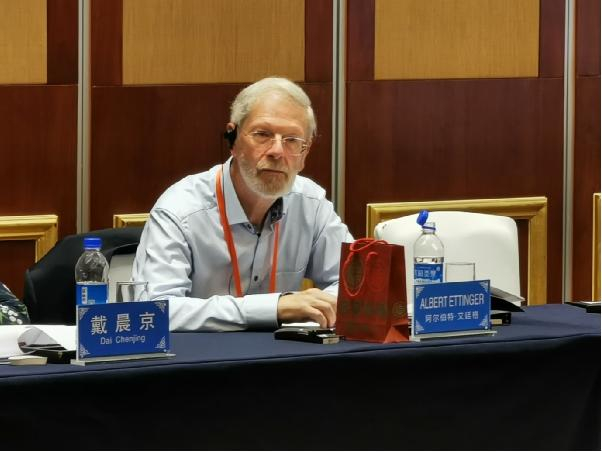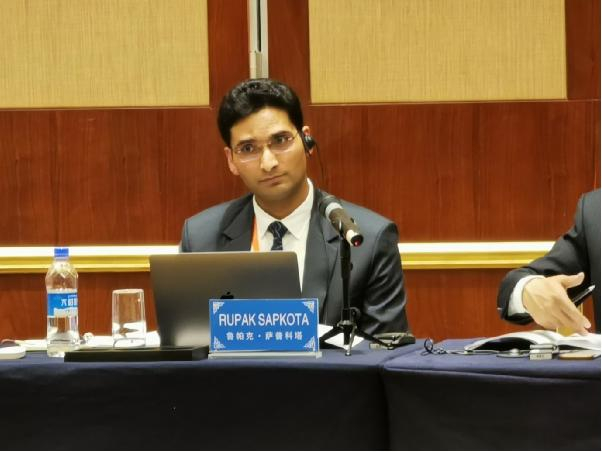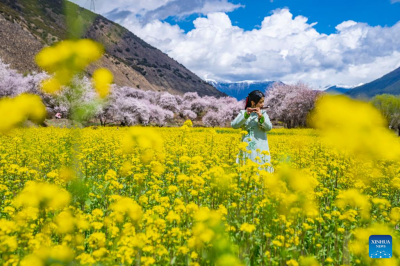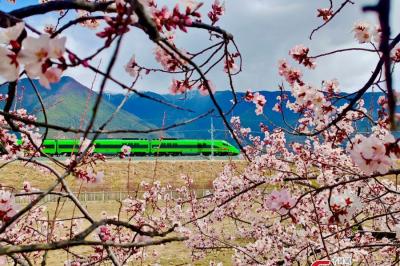| June 17, 2019 -- The 2019 Forum on the Development of Tibet wrapped up in the region's capital Lhasa on June 14. About 160 representatives from 37 countries and regions joined group discussions on Tibet's overall growth and progress. Chinese President Xi Jinping has sent a congratulatory letter to the forum, highlighting that Tibet has witnessed enormous progress since democratic reform was carried out in 1959. He called for participants to come up with suggestions on Tibet's development in all aspects. The talks centered on topics like Tibet's role in the Belt and Road Initiative and the preservation of Silk Road civilizations. They also tackled the inheritance and development of Tibetan culture. Participants of the forum showed a keen interest in the region's opening-up policies.  Back in the 6th century, residents of southwest China's Sichuan and Yunnan provinces traded tea for horses with people of Tibet, following a winding path through the mountains. The route is known as the Southern Silk Road, an integral part of modern-day China’s Belt and Road Initiative. At the forum, participants discussed the region's significant role in preserving Silk Road civilizations. Elizabeth Helen Mcleod, CEO of Meridian Line Films, told CGTN that Tibet wasn't a cut-off remote part of the world. She added the region was at the center of both commerce and knowledge exchange between south and north of the Himalayas, and the east and west of China.  Albert Ettinger, a scholar from Luxemburg, said that the reform policies in the 1980s accelerated Tibet's economic modernization and development. As a result, Tibet has made enormous progress in a relatively short period of time, both economically and culturally, which makes it stand out positively from other regions in the world. As outlined in a white paper titled "Democratic Reform in Tibet — Sixty Years On," Tibet has been working towards building a closer connection between China and South Asia countries. It's a crucial part of an economic corridor linking China with Bangladesh, India and Myanmar. In 2018, the region unveiled about 1,500 projects designed to invite external investment. It’s part of a policy focusing on open development. Over the years, Tibet has also worked to open its central and frontier cities to the rest of South Asia. As the integration of Lhasa and Shannan progresses, an economic and transportation hub in central Tibet is taking shape.  Rupak Sapkota, Secretary General of Nepal Institute for Strategic Studies, told CGTN that China and South Asian countries should work on enhancing a physical connectivity, via railways, highways as well as flight routes, to shorten the distance, and therefore facilitate multilateral trade and investment activities. Participants also highlighted the role of opening-up policies in preserving Tibetan culture. Octavio Ramos Lazcano, Consultant of the Mexican Chamber of Deputies, said in a speech at the opening ceremony on June 14, that "by opening Tibet to the world, you are ensuring that the richness that it represents not only transcends its borders. It also shows the survival and growth by disseminating a part of the Chinese culture to the world." Prior to today's event, the participants went on a four-day trip across the cities of Nyingchi and Lhasa. They visited local villages, schools, and exhibition centers, getting an up-close look at the Tibetan way of life and traditions. For most of them, it was their first time visiting Tibet. They said the trip gave them a better understanding of life in the region, and helped break some of its long-held stereotypes. |
- Home
- News Tibet |Exclusive |China |World |Related News |Latest
- Documents White Papers |Others
- Photo Politics |Economy & Society |Culture & Religion |Human & Nature |Beautiful Tibet |Other Tibetan-Inhabited Area |Exchanges |Related
- Video News |Documentary |Micro-Video |Entertainment
- Art
- Tourism
- In Focus
- About Tibet






